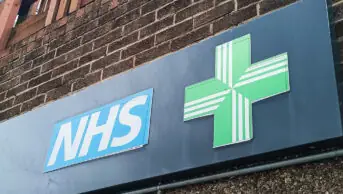
UK Parliament
Pharmacy business owners “are not regulated as strongly as they could and should be”, according to the pharmacy minister.
Stephen Kinnock made the comments during a debate about community pharmacy chain Jhoots in the House of Commons on 15 October 2025.
In response to a question from Edward Morello, Liberal Democrat MP for West Dorset — who asked the pharmacy minister to make a statement on the adequacy of Jhoots — Kinnock said the services provided by the chain are falling “well below the mark” of the “excellent” standards of care provided by most community pharmacies.
“Where pharmacy stores regularly breach their terms of service, [integrated care boards] can give them notice that they are being removed from the pharmaceutical list,” Kinnock said.
However, he said the process can “take some time to work through the system”, owing to the possibility of appeals.
Kinnock said that he had asked health officials “to explore whether we can strengthen the regulatory framework to be able to deal more quickly with pharmacies that do not play by the rules”.
“My officials are working on that as a matter of urgency,” he added.
The debate follows concerns around unexpected closures and “poor service” at Jhoots branches, with concerns being escalated to NHS England.
There have also been reports that the chain is not paying its staff.
During the debate, Morello said: “Jhoots staff have gone months without pay, despite payslips being issued, tax deductions made and pension contributions not deposited. I have been contacted only this morning by staff who have not been paid for the third month.”
Kinnock responded: “I have spoken with officials in my department, who have worked in the pharmacy sector for many years, and they have never seen behaviour like this before.
“It is quite unprecedented. Nevertheless, it is shining a light on the fact that we do not have a strong enough regulatory framework. We need to look at the way that business owners are regulated. There is strong regulation of pharmacists and pharmacy staff, such as technicians, but business owners are not regulated as strongly as they could and should be.
“I have commissioned urgent advice from my officials to see how we can beef up the regulatory framework.”
He also said there is potential for the General Pharmaceutical Council (GPhC) to take immediate action.
Kinnock added that he had not met with the management of Jhoots, following legal advice “that it would not be appropriate at this time” to interfere in existing legal and regulatory enforcement procedures but said he would be “open to it” if this advice changed.
“Pharmacies are private businesses and must be responsible business owners. We can regulate what pharmacies should and should not do as part of their NHS terms of service, but it is not possible to prevent pharmacies from, for example, not paying their staff,” he said.
Kinnock told MPs that he is in touch with the Pharmacists’ Defence Association, “which is doing important work representing its members”, and he “strongly” recommended pharmacists join a trade union and seek legal advice from it.
“That is a vital part of what trade unions do. They need to take action to force Jhoots to do the right thing,” he added.
The GPhC told The Pharmaceutical Journal that it had so far met with three MPs in relation to their concerns about Jhoots, with a further meeting with an MP taking place on 16 October 2025.
Chris Askew, interim chief executive and registrar at the GPhC, said: “Since January 2025, we have taken enforcement action across five separate premises owned by Jhoots. We also have some ongoing investigations relating to pharmacy professionals working for Jhoots. We are unable to provide further detail about these investigations at this stage.
“Our focus in regulating pharmacies is on patient safety and whether a pharmacy is operating safely and effectively. We are currently reviewing the information we hold for Jhoots pharmacies, to ensure they are appropriately prioritised for future inspections. We are also working with other bodies such as NHS England, which is responsible for managing contracts with community pharmacies, as well as the Department for Health and Social Care.”
Henry Gregg, chief executive of the National Pharmacy Association (NPA), said: “Jhoots is not a member of the NPA, and we are concerned, as others are, about reports of staff members going without pay and closures without following due process.
“It’s worrying and distressing if any pharmacy faces issues, and we are of course anxious that any issues are rapidly sorted out so local people can get the pharmacy service they need.
“The GPhC and NHS already have extensive powers available to them if they feel pharmacies are falling short. We should be careful not to add further burdens on the many pharmacies who take their responsibilities very seriously despite the significant financial crisis that they face.”
Jhoots has been approached for comment.


